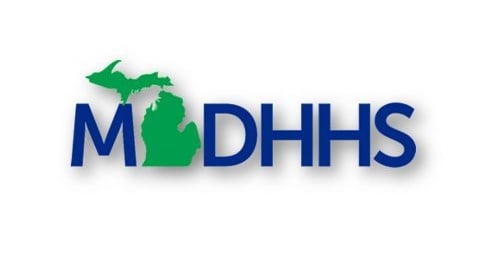-100.jpg?width=300&name=sbam%20logo%20(hubspot)-100.jpg)
Legislation pausing the state’s 27.2-cent-per-gallon gasoline tax for six months made its way out of the Senate this morning on a 24-14 vote, as the state and country grapple with record-high gas prices. However, the Senate didn’t give the bill immediate effect, which pushes its implementation to next year, essentially negating its effectiveness.
Last week, the average weekly cost of conventional gas across the United States was $4.18 a gallon – the previous record-high was set in Summer 2008 at $4.05. In Michigan, motor fuel consumers paid slightly more than 16% of the retail price into taxes on Mar. 8.
Sens. Sean MCCANN (D-Kalamazoo) and Dayna POLEHANKI (D-Livonia) crossed party-lines and voted in favor of suspending the state’s motor fuel tax.
In its original form, HB 5570 held the potential to save Michigan drivers $5.44 per filling a 20-gallon tank, while also subtracting around $725 million from funding for Fiscal Year (FY) 2022 road projects.
In committee this morning, the Michigan Department of Transportation (MDOT) expressed a gas tax vacation would disrupt the completion of ongoing road and bridge projects, while also barring them from meeting the four-to-one ratio to have maximal use of federal infrastructure funding.
However, Republican lawmakers stand their ground. With the state having a $4-$5 billion surplus in the General Fund, there’s plenty of money that could be used to patch together funding holes and get road repairs and building back on track.
Democrats offered several amendments to HB 5570. They looked to penalize price-gouging when retailers charge more than the original price of gas. Another amendment linked the bill with restoring Michigan’s no-fault auto insurance policies that financed medical expenses after a car accident. Sen. Adam HOLLIER (D-Detroit) presented an amendment to give households each a $250 utility check.
He said pausing the gas tax for six months will give people back $75 and “I just don’t think that’s us actually doing something for people.”
Hollier’s amendment, exactly like the other Democratic proposals, was shut down by the Senate’s Republican majority.
This morning the Senate Finance and Transportation and Infrastructure Committees hosted a joint hearing on the state’s gas taxes, cost transparency, and projections.
During the hour-long presentation series, President Mark GRIFFIN of the Michigan Petroleum Association said although 70% of gross sales come from motor fuel at the retail level, it accounts for merely 30% of the profit for local gasoline wholesalers and retailers.
“It is important to note that we’re the first taxpayer when it comes to motor fuel,” Griffin said during the committee meeting. “When we purchase fuel from the major oil companies, we prepay all of the federal taxes and all of the state taxes, including sales taxes at the time of purchase.”
Chief Economist David ZIN of the state’s Senate Fiscal Agency (SFA) said from 2010 to 2019, the monthly average of gas prices was “a little under $3 a gallon, which if you look, really was not a common price.”
According to Zin’s presentation, the average Michigan driver consumes around 557 gallons annually and in 2019, a Michigan driver crossed an average of 14,308 miles. His presentation showcased that for the average driver, the 2022 rate of the state’s motor fuels tax would cost $151.
However, also according to Zin and the SFA, federal and state taxes contributed to 14.7% of the cost of gasoline as of January 2022, while 55.7% came from the expense of crude oil and 15.8% from the cost of distribution and marketing.
In a related story:
Whitmer Wants Federal Gas Tax Suspended; RGA To Spend $3.5M In Michigan |
|









.jpg)
.png)




